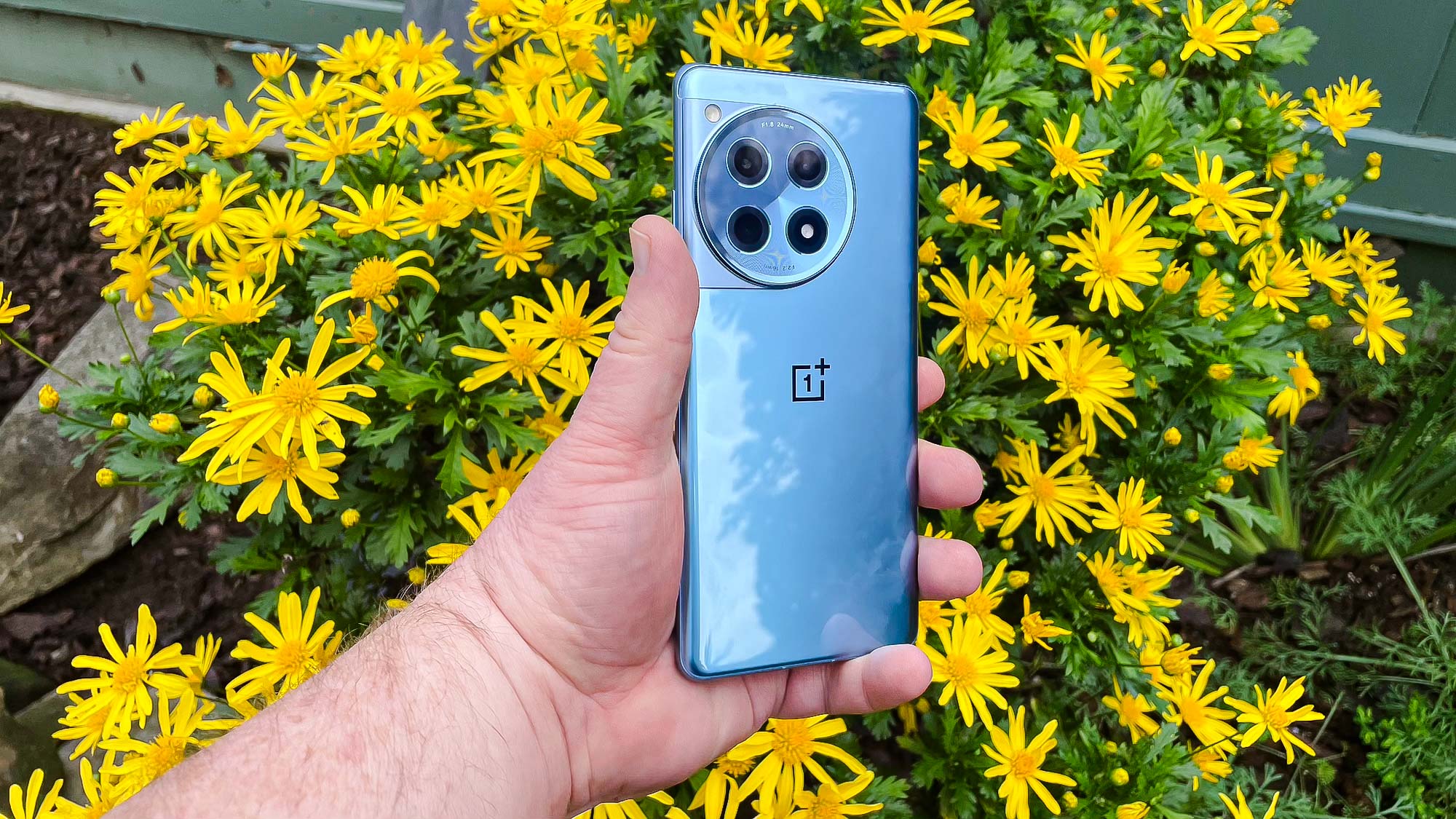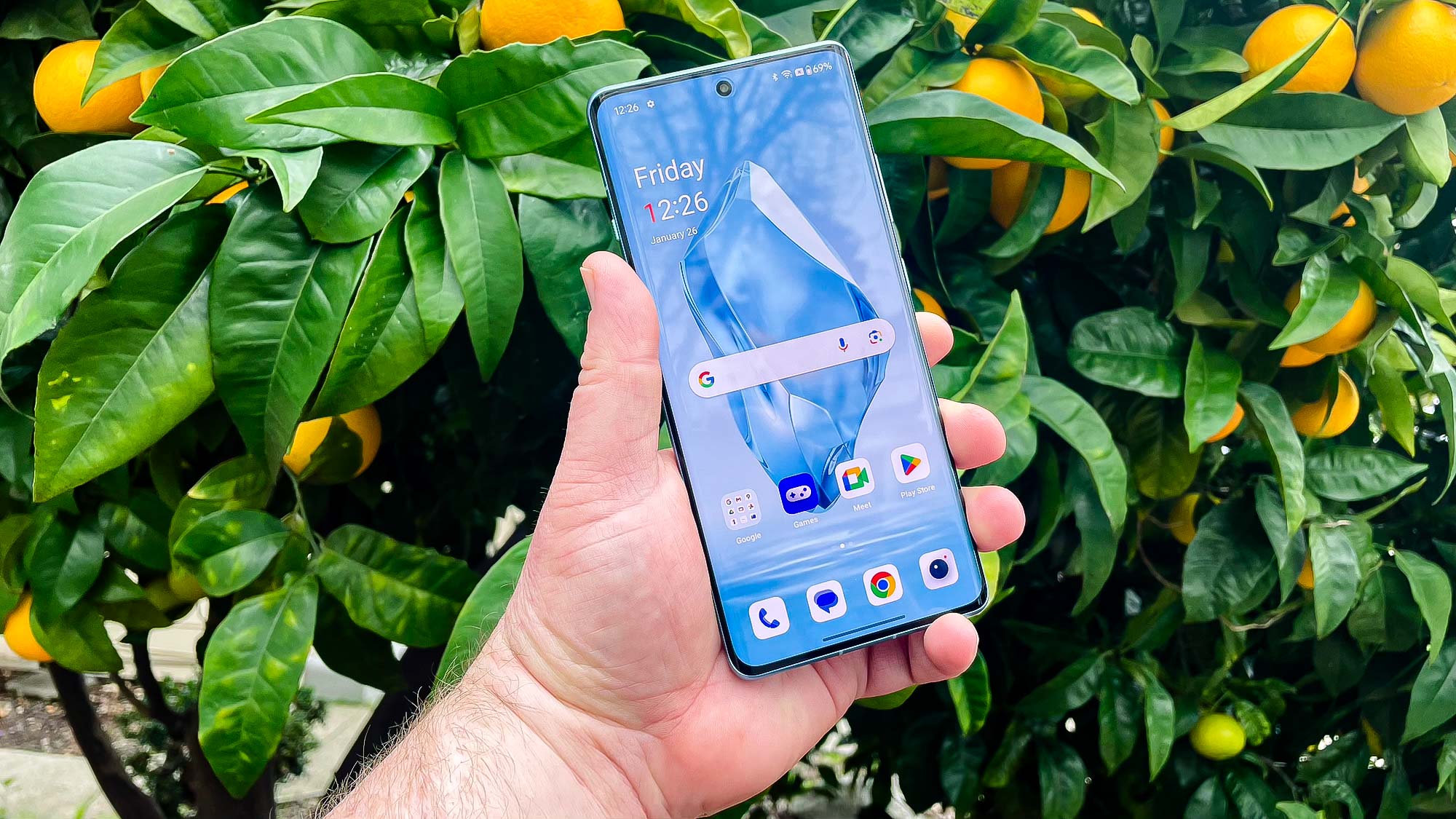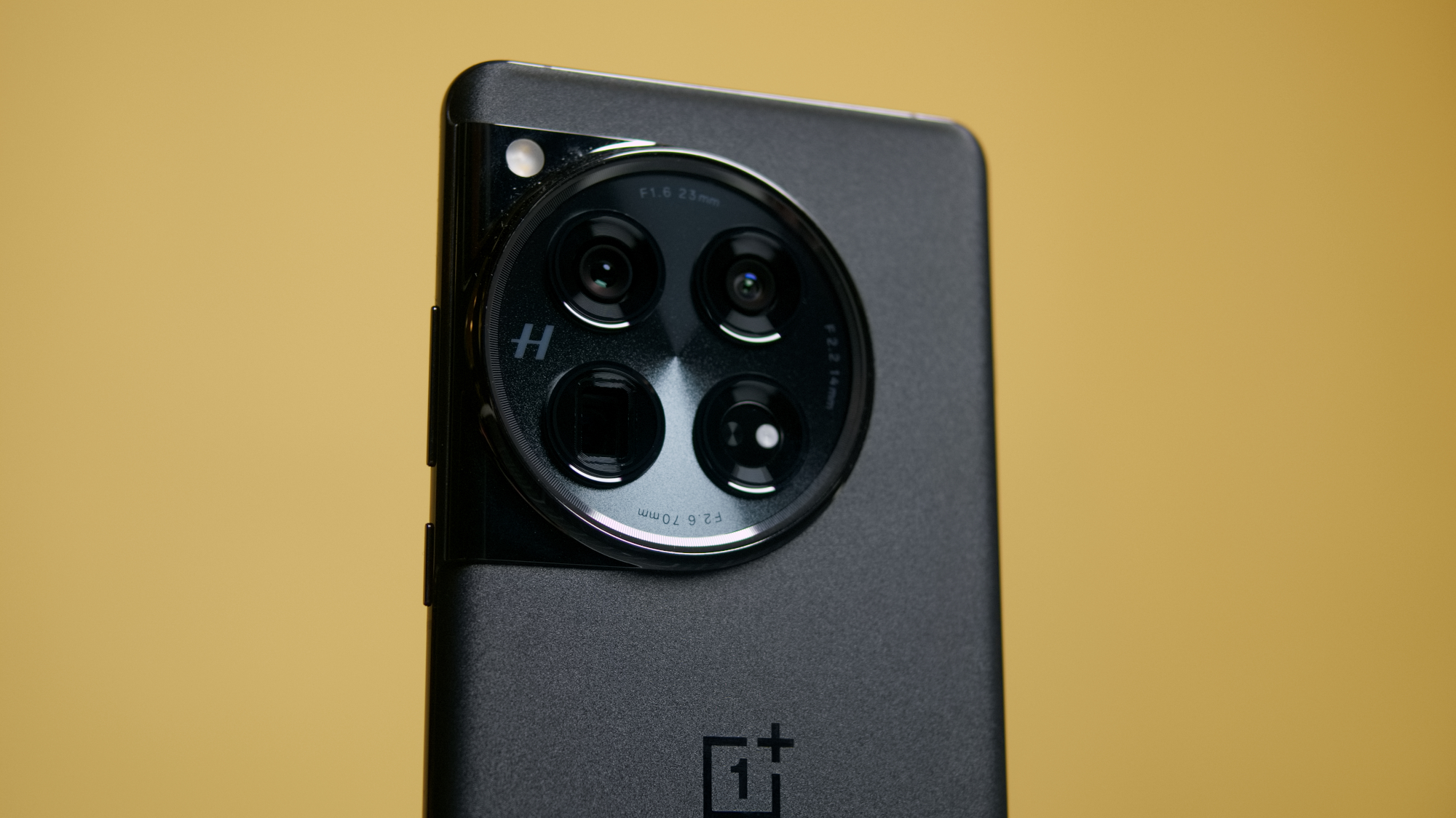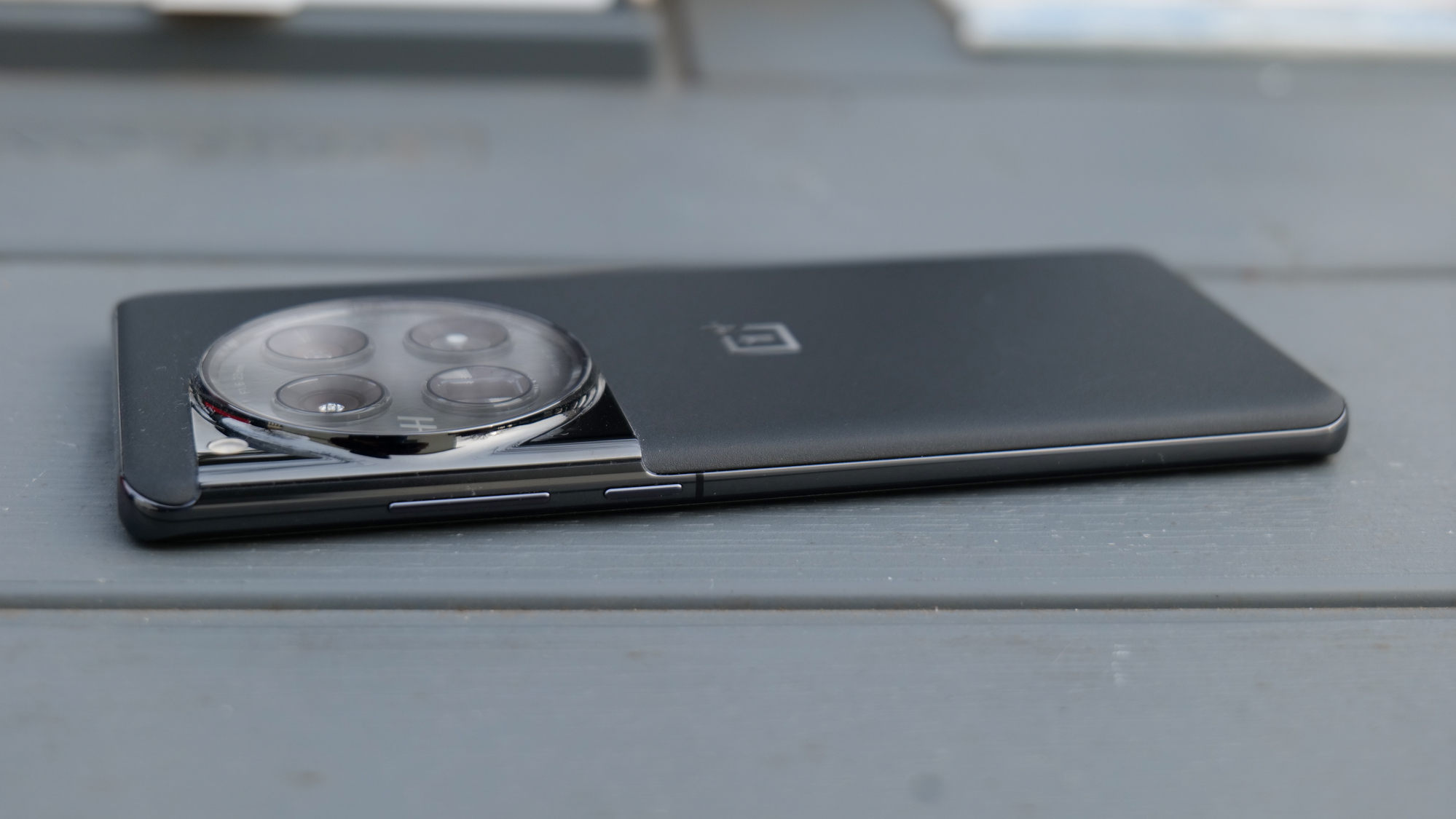
Check out our previous article where we spoke to Liu about OnePlus' insistence that its shorter Android update policy is better than a longer one.
OnePlus' 2024 has been off to a flying start. It's launched not only the mighty but competitively-priced OnePlus 12 but also the OnePlus 12R, a cheaper but still impressive variant that focuses on performance and longevity rather than aiming to be a fully-rounded flagship.
But what made OnePlus finally bring a OnePlus R device to the global market? Why has OnePlus brought back wireless charging (and why did it go in the first place)? And why the lack of AI features versus other flagships like the Galaxy S24 Ultra?
These are the questions we got to put to OnePlus president and COO Kinder Liu, and the answers are revealing of how OnePlus operates in a different way to other phone makers — for better or for worse.
The OnePlus R series goes international
OnePlus has made R series phones since 2021's OnePlus 9R, but has kept them for its Indian customer base until this year's revision.
According to Liu, it was good old user demand that led to the OnePlus 12R's world tour. "Our fans had been telling us for a while that they wanted to see a OnePlus R series device come to North America and Europe, so I'm happy we've finally been able to make that happen."

We're rather happy OnePlus did so too. The OnePlus 12R proved to be a superb phone for battery life in our testing, as well as offering a great screen and strong performance in a surprisingly cheap package. If you don't mind the downgraded cameras, it's a fantastic value.
Liu also mentioned that "going forward, we'll continue to study what our users are looking for to bring them the best mix of phones we can." Fingers crossed this means greater international availability in the future for things like the OnePlus Nord series, which has its various models offered inconsistently across territories.
OnePlus 12 AI: Coming soon?
Naturally, we had to ask Liu about AI - one of the biggest trends in tech right now, but one that OnePlus didn't spend that much time on when launching the OnePlus 12 series.
Liu didn't have that much more to add, explaining: "[OnePlus is] continuing to evaluate the opportunities AI brings and will announce new developments later in the year."
This sounds likely to be linked to new AI features rolled out to OnePlus 12 and OnePlus 11 handsets in China, which include features like article summaries and generative image editing. Even though these updates are already live in the China-only HydrogenOS software that OnePlus phones use in their home territory, it seems we may have to wait some time before they go global in OxygenOS.
Why OnePlus keeps changing its mind on cameras, wireless charging and waterproofing
We also quizzed Liu about some of the OnePlus 12's features, and why some of its features lag behind its competitors, or even disappear from certain models.
Part of our focus was on the OnePlus 12's 3x telephoto camera. While an improvement on the 2x zoom camera in the OnePlus 11, it's a bit lacking in power compared to the 5x offered by the Samsung Galaxy S24 Ultra or iPhone 15 Pro Max. But according to Liu, 3x zoom is apparently "the most common focal length," and "gives fantastic results at a range of distances."

Liu continued: "While others might focus on additional telephoto lengths, we've continued to work with Hasselblad on our portrait lenses and new Master Mode which we think gives greater benefits to our users."
OnePlus' Hasselblad partnership has paid great dividends over the years, taking the company's cameras from one of a OnePlus phone's most underwhelming features to properly competitive. This year's fourth-gen Hasselblad-tuned cameras on the OnePlus 12 are better than ever, easily outperforming the OnePlus 11. But we'll get back to you on how it compares against the current triumvirate of best camera phones — the Galaxy S24 Ultra, the iPhone 15 Pro Max and Google Pixel 8 Pro.
Liu also provided an answer as to what's been happening with wireless charging and water/dust resistance on its flagship phones. These two features have been established over several years as essentials for flagship phones, except in the case of OnePlus.

Wireless charging first appeared on the OnePlus 8 Pro, but then disappeared for the OnePlus 10 Pro, only re-appearing on the OnePlus 12. As for a formal IP rating, the OnePlus 8 Pro was also the company's first phone to do this, with the same IP68 rating found on most other flagship phones. This was expanded to both the OnePlus 9 and OnePlus 9 Pro before being removed for the OnePlus 10 Pro, since returning as a diminished IP64 for the OnePlus 11, and now IP65 for the OnePlus 12 and 12R.
It's easy to see OnePlus as being confused and inconsistent with these features (as we've done ourselves in the past). But Liu doesn't see it that way.
"We start each new project with a fresh slate and no preconceived notions, including on what features to include or not to include. That's why features like our IR blaster feature here when it hasn't always before, and why other features will sometimes come in and out of our phones. For instance, with OnePlus 12 we felt that we could include a wireless charging coil without harming the design of the phone. But in OnePlus Open, our first foldable, including a wireless charging coil would have given our users a bad experience, so we didn't add one."
Whether that's a justifiable reason, we'll leave up to you. But it's nice to know there is some internal logic to what OnePlus is doing year-to-year when it throws certain features away.
The OnePlus 12 is now on sale globally, while the OnePlus 12R goes on sale on February 13. You can read about what we made of these phones in our OnePlus 12 review and OnePlus 12R review.







